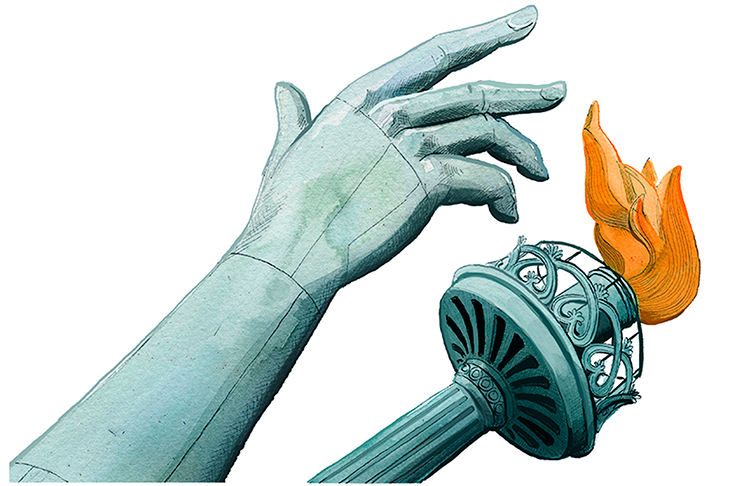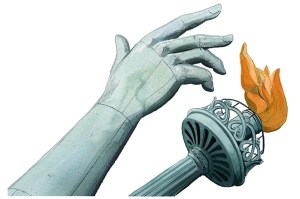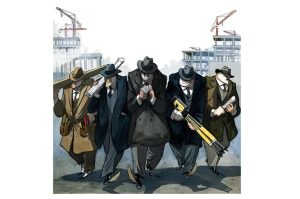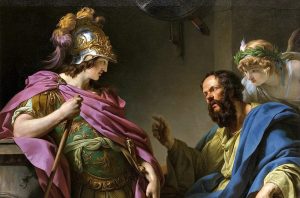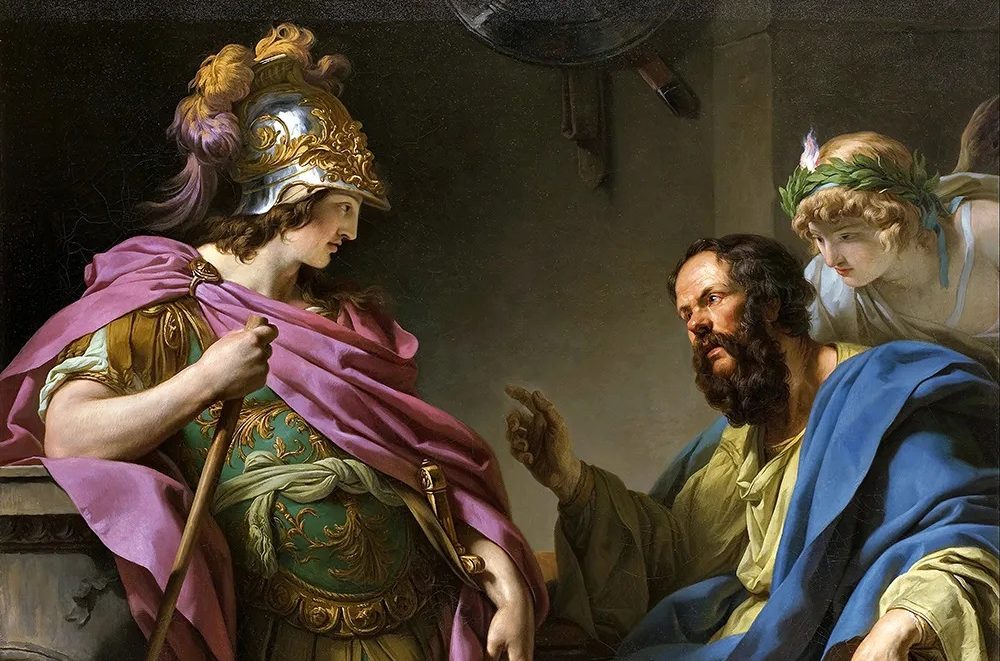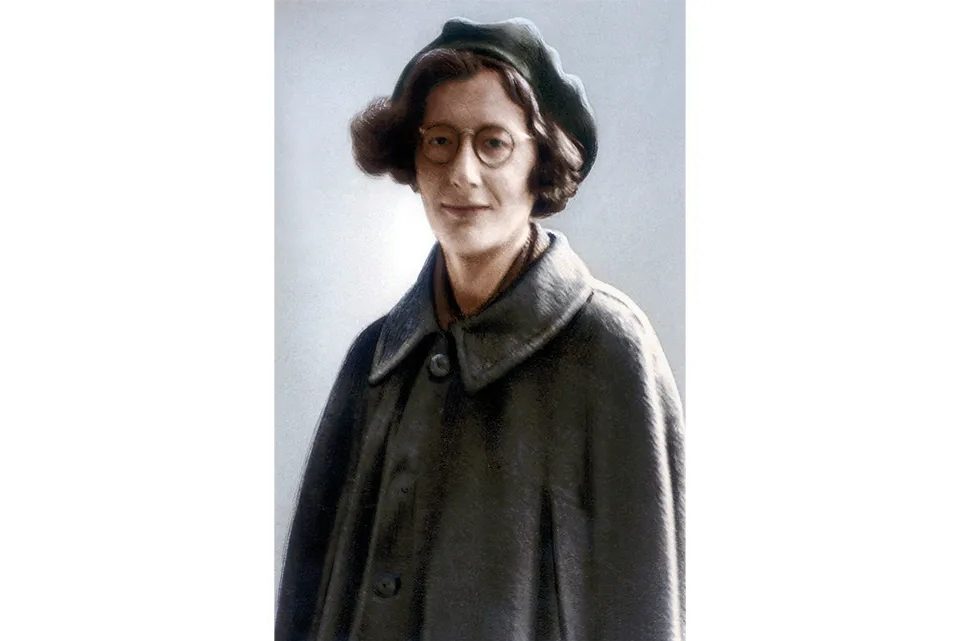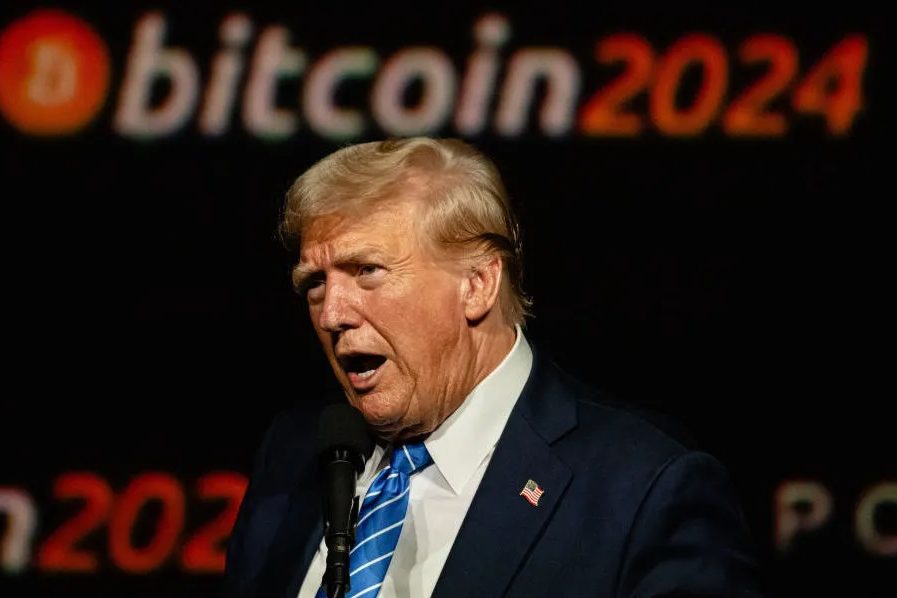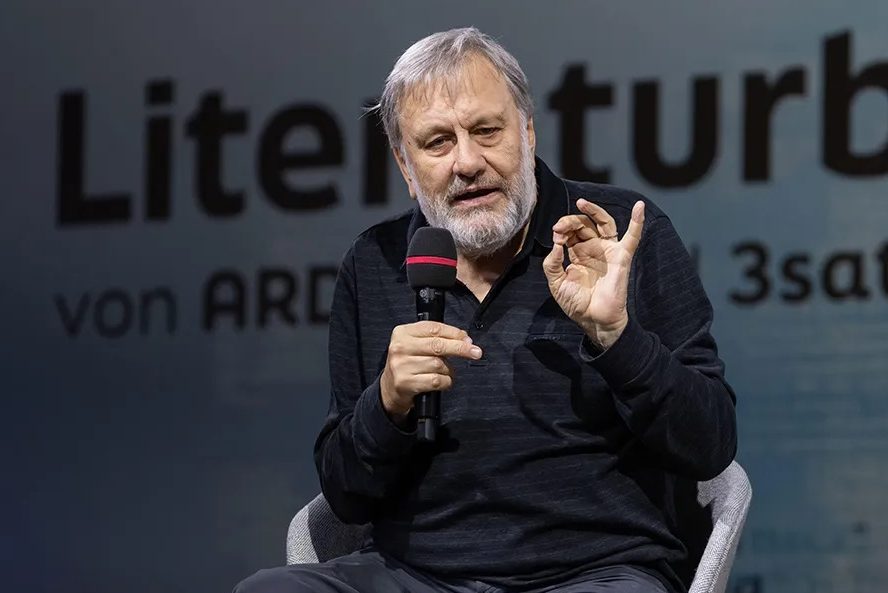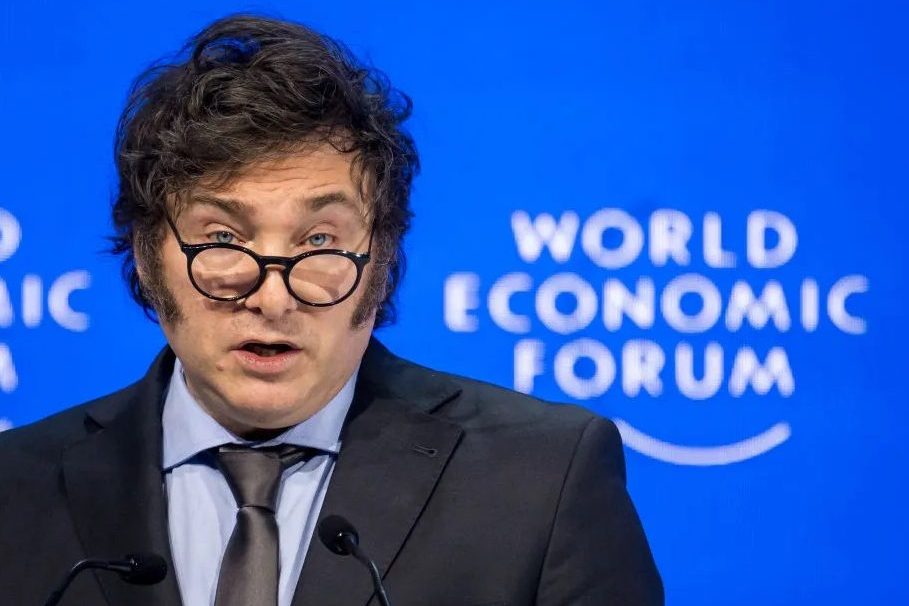Are citizens of liberal societies permitted to question liberalism? In theory, the answer is yes, given liberalism’s commitment to ‘free thought’ and ‘the marketplace of ideas’. Such tolerance is rarely in evidence in practice, however — a reality illustrated in hilarious fashion by a writer for a Washington magazine who recently decried ‘cancel culture’ even as he insisted that: ‘It’s absolutely necessary to de-platform public intellectuals who object to liberal democracy.’
To the liberal mind, to question liberalism risks opening portals to the past, a place populated by tyrannical kings, Catholic inquisitors, Spanish conquistadores, religious warriors, zealous apparatchiks, ‘collectivists’, fascists and sundry other ghastlies. Over the past few years, as voters registered discontent with the global liberal consensus, an entire cottage industry of books, essays and charities has sprung up to warn against revivifying the past.
The past, we’re so often told, is a dystopia — a cauldron of backwardness and bigotry. One that must be repressed at all costs.
Liberals disagree over where exactly lies the line dividing the enlightened time and the dark time. ‘Classical’ liberals tend to mark 1789, whereas ‘progressive’ liberals — noting that much of reality since that watershed year has failed to conform to their own liberal ideal — are uncomfortable with anything not from the present or the future. Hence they now issue fatwas against even the avatars of liberalism’s own recent past (Cher, Dr Seuss, J.K. Rowling, etc).
The current tendency to see the past as a foreign land of endless horrors brings with it periodic bursts of purges and violent iconoclasm — most recently, the statue-toppling of last year. In the realm of ideas, we see the inability of even Christian liberals to tolerate any serious consideration of non-liberal political, economic and cultural arrangements. We see the growing discord in the Anglican Church over once-standard ideas about marriage and gender.
Church and state have long been separated. The ideal is that a new liberal order ushers in a new, rational, tolerant and secular regime: cleaving apart day-to-day politics from religion and metaphysics. So instead of enshrining any one orthodoxy, a liberal neutral ground would be created, one that could be contested by rival accounts of the good life. The religious would be able to live happily beside the unbelievers, with all minorities protected. In this way, the advent of liberalism would — once and for all — put an end to the persecutions of the past.
But has that really come to pass? Given man’s inclination to worship, to build altars in the public square, our societies will always enshrine some orthodoxy or other (and, therefore, empower some clerisy or other). The only questions are: which orthodoxy? Which clerics? If the past couple of years have made anything clear, it is that there is to be no neutrality. The West must choose.
Do we enshrine the orthodoxy of the latest theories on race, sex and gender? Do we empower the woke clerisy, the army of blue-check Twitterati and HR managers who can destroy careers and lives in a matter of minutes over the smallest of ideological infractions, and whose judgments are subject to no reasoned appeal and no code of canon law? Do we live under their new blasphemy laws, ostensibly designed to prohibit ‘hate speech’?
Or do we choose the more forgiving, perhaps old-fashioned orthodoxy that sustained western culture for the better part of two millennia? The Judeo-Christian values and institutions that venerated natural reason, that by their discipline tamed the big and small would-be tyrants of Europe, reminding them that there exists a higher power than theirs? You don’t need to be religious to think that, on balance, this world view has put us in pretty good stead so far — and is worth keeping now.
It’s tempting to imagine that there is no choice — or to defer the choice for ever. This excuse for doing so is precisely that the present is the best of all possible worlds, while any attempt to preserve the past means clinging to unremitting horrors. For the liberal, to evoke a bedrock pre-modern concept such as the common good — much less the highest good — is to summon those various demons that good progressive liberal values were supposed to have vanquished.
Anyone, left or right, calling today’s progressive order into question — or daring to propose alternatives — is first asked to apologize for these horrors, stretching from antiquity to whenever enlightened time began (which may be as recently as a couple of years ago). This is a type of intellectual blackmail, and the best defense against it is to go on the offense: no, it’s the actually existing present that increasingly resembles a dystopia, and the onus is on the liberal to give account and apology. The non-liberal’s rejoinder can be summed up with three simple words: look around you.
Look around you: has liberalism delivered on its own terms, on its promise of neutrality between world views? How’s the liberty of the church faring amid lockdowns and renewed threats to force American nuns to pay for abortifacients? Why are churches told they can no longer run adoption services if they refuse to follow the liberal view on sexuality? Why was a Catholic priest expelled from a Glasgow university campus because he held a prayer meeting protest on the day of a Pride march? This is not a sign of neutrality, but one world view crushing another.
Look around you: if a 200-plus-year-old newspaper like the New York Post (where I work) can be censored ahead of an election for posting a true story about Hunter Biden, how safe are you from the censors and cancelers? Does it make any meaningful difference that in liberal societies, the repression is meted out by large, privately owned corporations, rather than a centralized state? Do a Silicon Valley dweeb’s Birkenstock sandals taste any better than a junta commandant’s boots?
Look around you: when was the last time you felt like you lived in a pluralistic, tolerant society? Does the Free World feel free? Four centuries or so since it was launched, has the liberal project delivered on its promise to make men and women free, by toppling all the old authorities? Or has the downfall of authority left us more vulnerable to more insidious and subtle forms of coercion, by woke demagogues, employers and advertisers?
Look around you: does our marketplace of ideas resemble anything like that promised by the bewigged liberals of the late-18th and 19th centuries? Does truth prevail over its cacophony of nonsense? Set aside the teaching of Genesis, whatever happened to the basic teachings of biology and genetics about the immutability of sex? (Don’t ask Richard Dawkins, just cancelled by the American Humanist Association for daring to question gender ideology.)
Look around you: do today’s eye-watering wealth and power inequalities suggest that liberalism has done away with social hierarchies? Or has it rather empowered an especially selfish class of owners and managers, their rapaciousness made all the more galling by their woke and ‘meritocratic’ pretensions?
It won’t do for the ‘classical’ liberal to insist that these phenomena are gross distortions of some aboriginal version of his ideology. After a while, he begins to sound like the Trotskyist circa 1936 who, as evidence mounted of show trials, camps and NKVD torture, insisted that none of these crimes could be laid at the feet of ‘original’ Marxism.
At some point, the liberal has to admit that the powdered-wig version of his ideology contained in it the seeds of its woke, repressive variety: that enshrining individual autonomy and choice as the highest goods of human life would eventually create the conditions for a kind of private tyranny, precisely what the common-good tradition of classical and Christian thought had always warned about and sought to restrain.
The past, in a realistic frame, is a mix of light and dark. Remove the rosy glasses of liberalism, however, and it is the present that looks more dark than enlightened.
This article was originally published in The Spectator’s UK magazine. Subscribe to the World edition here.



